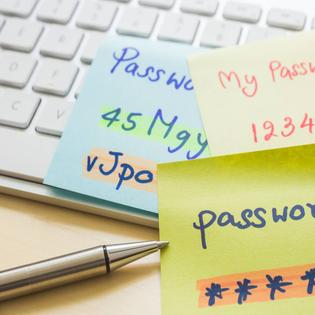Advertiser Disclosure
All About Cookies is an independent, advertising-supported website. Some of the offers that appear on this site are from third-party advertisers from which All About Cookies receives compensation. This compensation may impact how and where products appear on this site (including, for example, the order in which they appear).
All About Cookies does not include all financial or credit offers that might be available to consumers nor do we include all companies or all available products. Information is accurate as of the publishing date and has not been provided or endorsed by the advertiser.
Editorial Policy
The All About Cookies editorial team strives to provide accurate, in-depth information and reviews to help you, our reader, make online privacy decisions with confidence. Here's what you can expect from us:
- All About Cookies makes money when you click the links on our site to some of the products and offers that we mention. These partnerships do not influence our opinions or recommendations. Read more about how we make money.
- Partners are not able to review or request changes to our content except for compliance reasons.
- We aim to make sure everything on our site is up-to-date and accurate as of the publishing date, but we cannot guarantee we haven't missed something. It's your responsibility to double-check all information before making any decision. If you spot something that looks wrong, please let us know.
It’s typically easy to remember one or two passwords for separate online accounts. But what about remembering a dozen or even over 100 different passwords? Password managers are a convenient and secure solution for storing and keeping track of multiple passwords.
Let’s see how they work and explore some of the available password management options.
-
Strong encryption and security
-
User-friendly interface
-
Free version is limited to one device at a time
Types of password managers
What are the benefits of using a password manager?
Is it safe to use a password manager?
5 recommended password managers
Password manager FAQs
Bottom line
What is a password manager?
A password manager is a program that securely stores passwords and login information for online accounts. Such a program typically keeps track of usernames and their relevant passwords, but some password managers also offer additional storage options. For example, you could potentially store credit cards, bank accounts, addresses, and personal notes.
If you’re learning how to stay safe online, a password manager could help you take the next step in cybersecurity. Most password managers offer encrypted storage for your passwords to help block hackers and prevent malware access. You typically use a master password or a biometric signature to access the information contained within your password manager.
Another use for popular password managers is to generate random and unique passwords for you to use with your online accounts. This tool could come in handy if you frequently change your passwords and need help coming up with new ones.
Security experts often recommend password managers for online security purposes. Password managers often provide a better option than remembering and organizing passwords yourself.
Types of password managers
Password managers come in a few different forms, including:
Desktop apps
An application you could run from your computer desktop, whether you run Windows or Mac, that might only be available on one device. The low availability could make it harder for hackers to crack but limits its usability if you have multiple devices. For example, 1Password and LastPass offer desktop applications that you could set up to keep your passwords saved only on this device without syncing them to the cloud.
Mobile apps
Typically available on iOS (Apple iPhone) and Android devices to provide easy access to your information anywhere. Several password managers support mobile devices, such as 1Password, LastPass, Dashlane, and Keeper.
Browser extensions
Typically available to download as an extension on web browsers such as Safari, Google Chrome, Firefox, and Microsoft Edge. This could be helpful if you frequently use web browsers and need quick access to different passwords. 1Password, LastPass, Dashline, and Keeper all offer browser extensions.
Cloud-based services
Stores passwords securely in the cloud, which provides easy access to your information from different devices. This could allow you to access your password manager from a phone, web browser, or both. Some of the apps that store your passwords in the cloud and could share them between your devices are NordPass, 1Password, and LastPass.
Single sign-on (SSO)
This password management system reduces the need to use different passwords for multiple accounts. SSO is often used in business settings so employees can access corporate services without creating multiple accounts. An example of SSO is using your Google or Facebook account to quickly create accounts with other websites.
Open-source
Allows for free reviews, audits, and contributions to a password manager’s source code to help improve its security. Open-source password managers could be aimed at desktop devices or mobile devices. They could also be built for browsers and could make use of distributed networks. Bitwarden is a popular open-source password manager.
What are the benefits of using a password manager?
Here are some of the main advantages of using a password manager:
Remember passwords
It’s not uncommon for a person to have dozens of passwords. Password managers could take a load off your brain and safely store your passwords for when you need them.
Generate secure passwords
Password managers typically provide a tool to create a strong password using randomly generated uppercase and lowercase letters, numbers, and symbols. You often get to choose the password length and what types of characters you’d like to include.
Avoid reusing passwords
It’s never recommended to use the same password for different accounts because it could increase your potential security risk. Some password managers provide notifications if you reuse a password or use a weak password. They would then prompt you to create a new password.
Increase online security
The way password managers work increases your online security while also providing a convenient way to manage important online information. This type of security could significantly help with identity protection since your passwords would be randomly generated and secure.
Google Password Manager can be a helpful tool for remembering all those random passwords. But if your Google account gets hacked, cybercriminals also have access to all your stored passwords. Here's how to turn off Google Password Manager and why you should use a third-party password manager instead.
Is it safe to use a password manager?
Password managers typically use encryption methods to keep your information safe. Many apps also offer two-factor authentication or a verification method such as a one-time code sent to your phone. But that still doesn’t mean password managers are completely secure.
Popular password managers, including LastPass and OneLogin, have been compromised in the past due to security vulnerabilities and data breaches. But these security risks are typically fixed or mitigated quickly.
The best password managers remain a valuable resource for keeping individuals’ online information safe despite the potential vulnerabilities.
5 recommended password managers
If you’re new to password managers, you have plenty of options to choose from. Keep in mind that most password manager apps offer different plans for individuals, family members, and businesses. Here are some popular options that provide helpful features and are used by millions of customers worldwide.
1. 1Password
1Password provides an online password vault for your passwords secured with a master password. It has autofill features for quick access to your accounts and allows you to sync your information across multiple devices, browsers, and operating systems.
Lowest monthly price: $2.99/mo billed annually.
2. LastPass
LastPass offers secure storage for passwords, credit card information, bank account information, and more from multiple devices. You also get monitoring alerts if your personal information is at risk and access to the built-in password generator.
Lowest monthly price: Offers a free version. Premium plans start at $3.00/mo billed annually.
3. Dashlane
Access an unlimited number of passwords from anywhere on any compatible device with a Dashlane membership. Autofill, automatic password changer, and dark web monitoring are included in paid memberships. Dashlane also provides VPN access for secure web browsing.
Lowest monthly price: Offers a free version. Premium plans start at $2.75/mo billed annually.
4. Keeper
Use and access the Keeper password manager on an unlimited number of devices. Key features (depending on your plan) include secure password storage, random password generation, multi-factor authentication, autofill options, and emergency access in particular circumstances.
Lowest monthly price: Premium plans start at $2.92/mo billed annually, and student, military, and medical discounts are available.
5. Zoho Vault
Zoho Vault offers a free password manager and paid options if you want more features and functionality. The free version provides password generation, unlimited password storage, mobile device access, and two-factor authentication.
You might consider upgrading if you want technical support, cloud backup, or if you want to share passwords with a team.
Lowest monthly price: Offers a free version. Premium plans start at $0.90/mo billed annually.
Password manager FAQs
Which password manager is the strongest?
Here are some of the strongest and most popular password managers:
- LastPass
- 1Password
- Dashlane
- Keeper
- Zoho Vault
Most password managers use encryption methods to keep your information safe and secure. Hence, the best one for you likely depends on your preferences.
Which password managers have been hacked?
These password managers have been hacked or have had security vulnerabilities in the past:
- LastPass
- Dashlane
- 1Password
- KeePass
- Keeper
- OneLogin
In most cases, these password hacks weren’t severe enough to result in any significant damages. This is because premium password managers typically require multiple verification measures to access an account.
How can I remember all my passwords?
One of the easiest ways to remember all your passwords is to use a password manager. These helpful programs typically offer secure password storage and tools to generate new random passwords when you need them. Popular password managers include 1Password, LastPass, Dashlane, Keeper, and Zoho Vault.
Should I save passwords on my computer?
It’s typically not the best idea to save passwords on your computer if you want to protect your information. Different web browsers often suggest automatically keeping passwords for convenience, but this could make it easy for anyone with access to your computer to access your accounts. Password managers that don’t automatically enter passwords would likely be a safer option.
Bottom line
Password managers offer an effective way to safely keep track of multiple passwords, reducing the concern that you might forget or misplace a password. Most password managers also provide a tool for generating random passwords, so you have the option to update your passwords as frequently as you want.
Remember that password managers aren’t 100% secure, but they’re typically a better option than trying to remember dozens of passwords yourself. They provide an essential step forward in improving your online security. For more information on staying safe online, check out our guide to online security basics.
-
Strong encryption and security
-
User-friendly interface
-
Free version is limited to one device at a time





